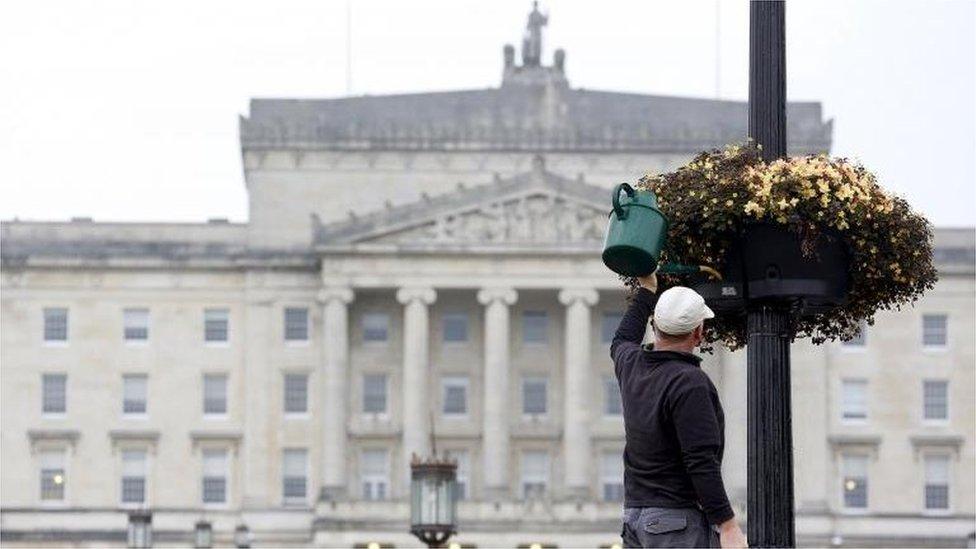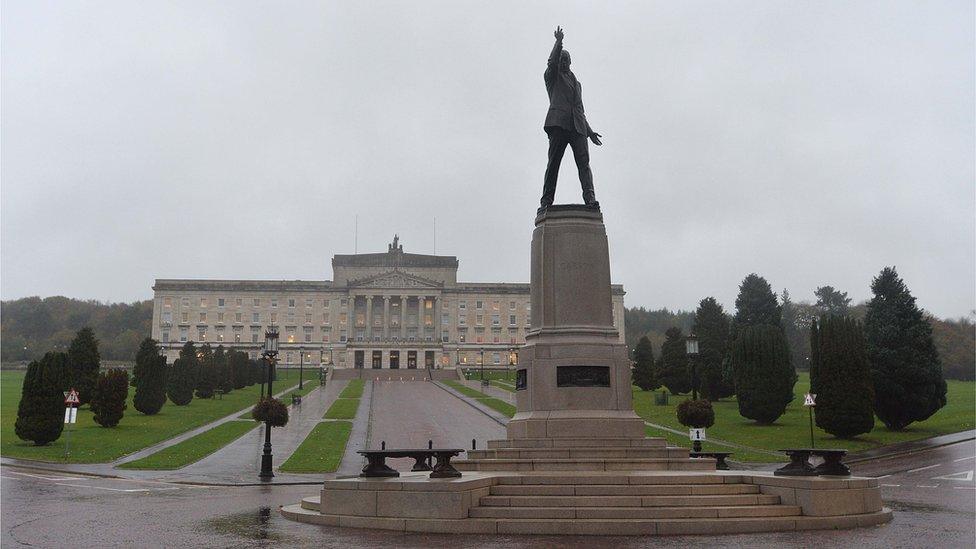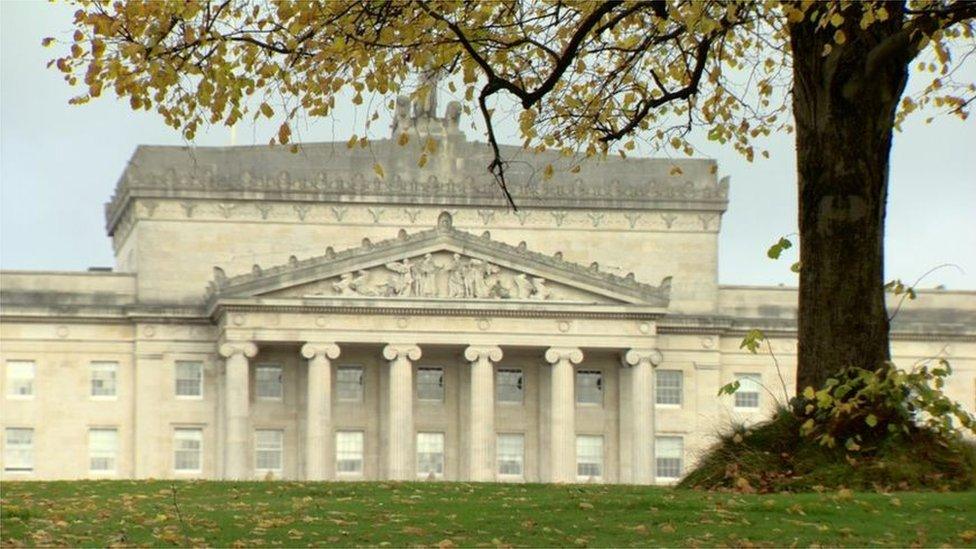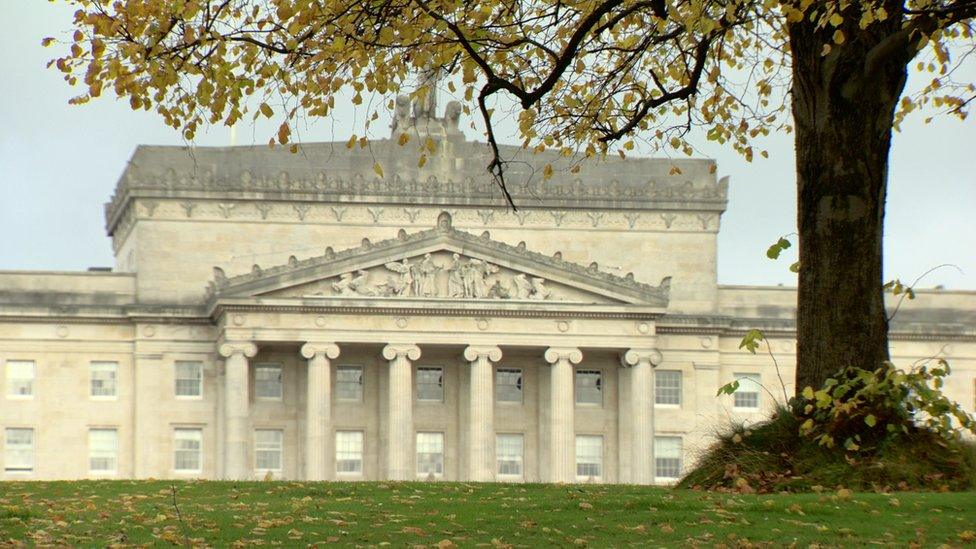Stormont talks: Speculation that political deal is imminent
- Published

The talks at Stormont have lasted more than two months
Sources are predicting that a deal to resolve Northern Ireland's political deadlock will be confirmed later.
The five main political parties, along with the British and Irish governments, were working to resolve differences over welfare reform and paramilitaries.
It is understood that politicians may press ahead without resolving issues over the legacy of the Troubles.
Welfare reform could be dealt with by Westminster, despite the fact that it is a devolved matter.

The story of Stormont's crisis
Stormont's political upheaval was sparked by allegations that Provisional IRA members were involved in the murder of a Belfast man.
The row erupted after a senior Sinn Féin member was arrested as part of the inquiry into his death. He was later released without charge.
Northern Ireland First Minister Peter Robinson stepped aside and all but one of his DUP ministers resigned
DUP ministers have since resumed their posts full time
Read more: How Stormont's crisis unfolded

It is thought that the format for Tuesday afternoon will be:
A meeting of the power sharing executive may be called at Stormont Castle, where SDLP and Alliance ministers might be given more details
The parties are also expected to meet at the nearby Stormont House for a final round table session of the talks together with Northern Ireland Secretary Theresa Villiers and Irish Foreign Minister Charlie Flanagan
A meeting of the Stormont Executive is also to take place
The assembly is likely to convene for a special meeting to deal with welfare on Wednesday.
The inter-party negotiations have been going on for 10 weeks and are also focusing on financial matters and paramilitary activity.
Ms Theresa Villiers said on Monday that it was time for parties to decide on a deal.
BBC News NI Political Editor Mark Devenport has looked in detail at what the agreement might contain.
The Northern Ireland Executive is a mandatory coalition of five main parties - the DUP, Sinn Fein, the Ulster Unionist Party, the SDLP and the Alliance Party.
At the end of August, the UUP walked out of the executive.
Party leader Mike Nesbitt made the recommendation after police said members of the Provisional IRA were involved in murdering ex-IRA man Kevin McGuigan Sr.
Sinn Féin's denial that the IRA existed made it "impossible to do business with them," Mr Nesbitt said.
On Monday, Deputy First Minister Martin McGuinness said there was still a stumbling block over the new agencies created to deal with the legacy of the Troubles.
The stumbling block is whether the UK government should be allowed to use national security as a blanket reason to refuse to disclose information.
The BBC NI's Home Affairs Correspondent Vincent Kearney reported on Tuesday afternoon that republican sources told him Sinn Fein and the British government were 'poles apart' on legacy issues, with both refusing to budge on 'red lines'.
The sources said talks on these issues would resume at later date.
Cross-party discussions began in September in a bid to resolve Northern Ireland's current political crisis.
That crisis erupted when police said they believed IRA members had been involved in the murder of a former IRA man in Belfast in August.
The parties have also been at loggerheads over the implementation of welfare reforms.
A welfare reform deal had been agreed almost a year ago, but Sinn Féin withdrew its support in March.
- Published17 November 2015

- Published17 November 2015

- Published16 November 2015
